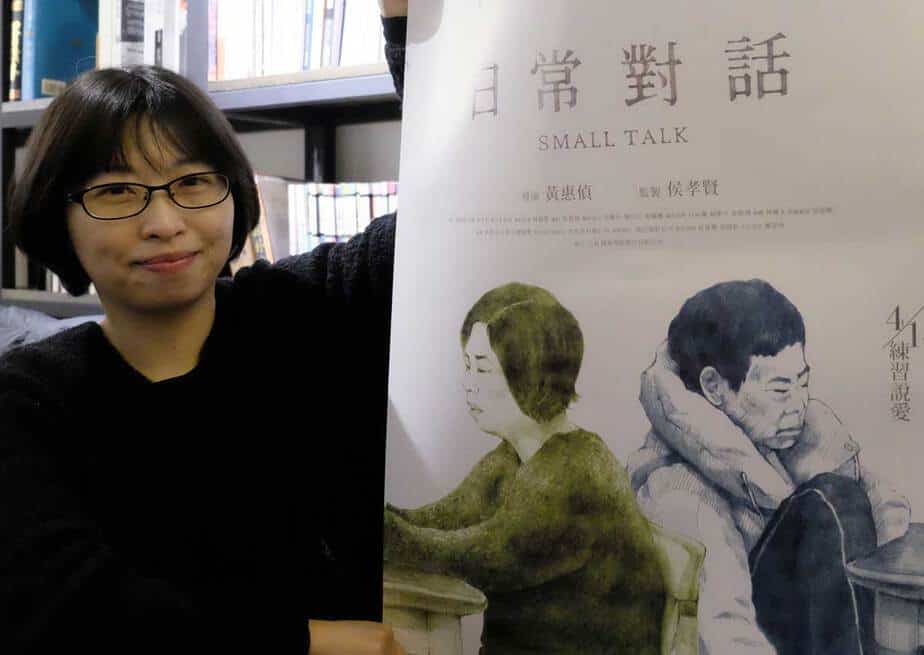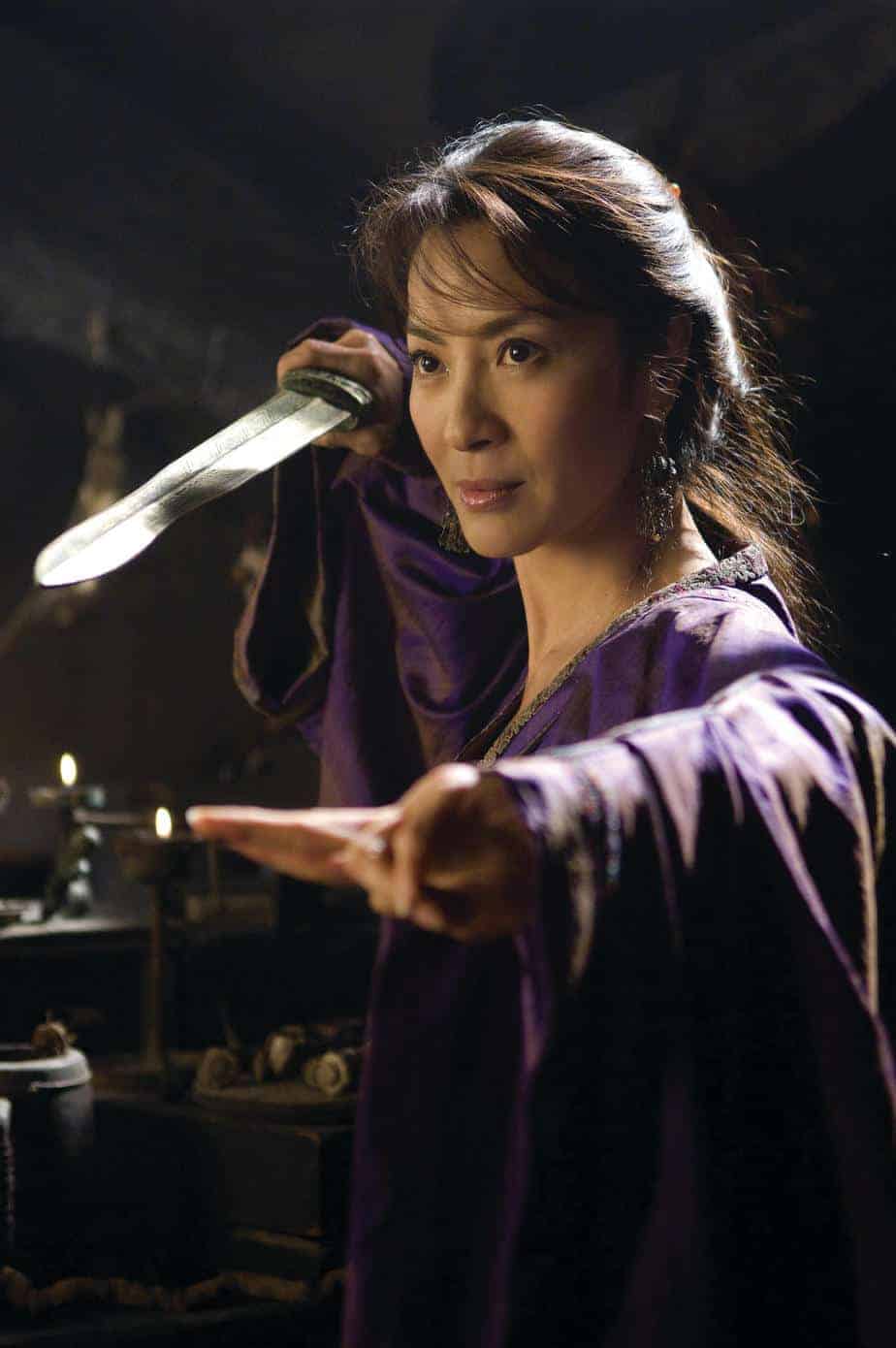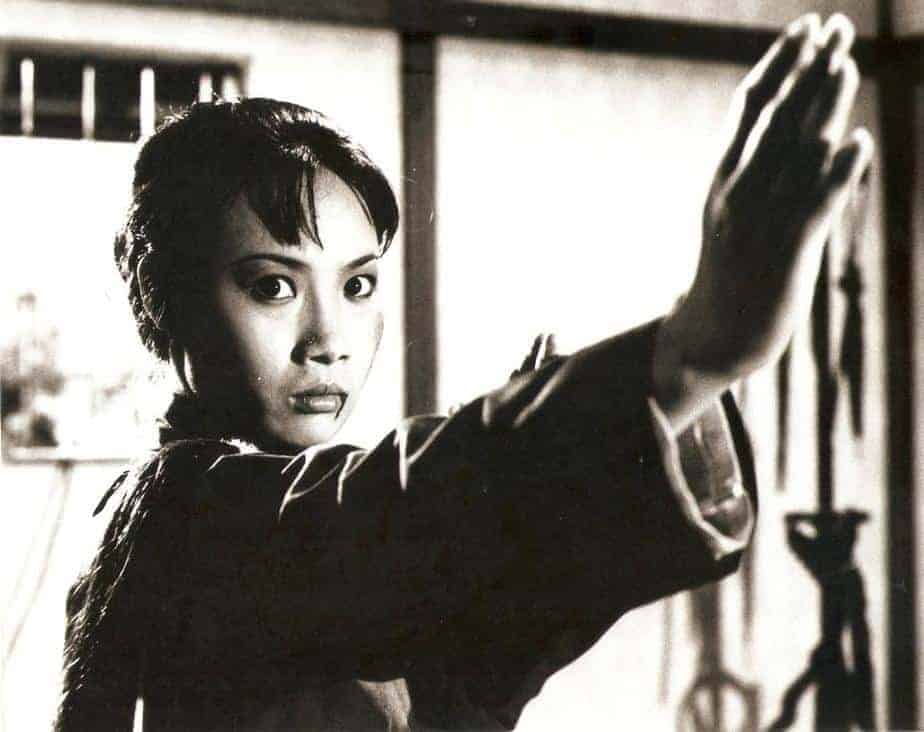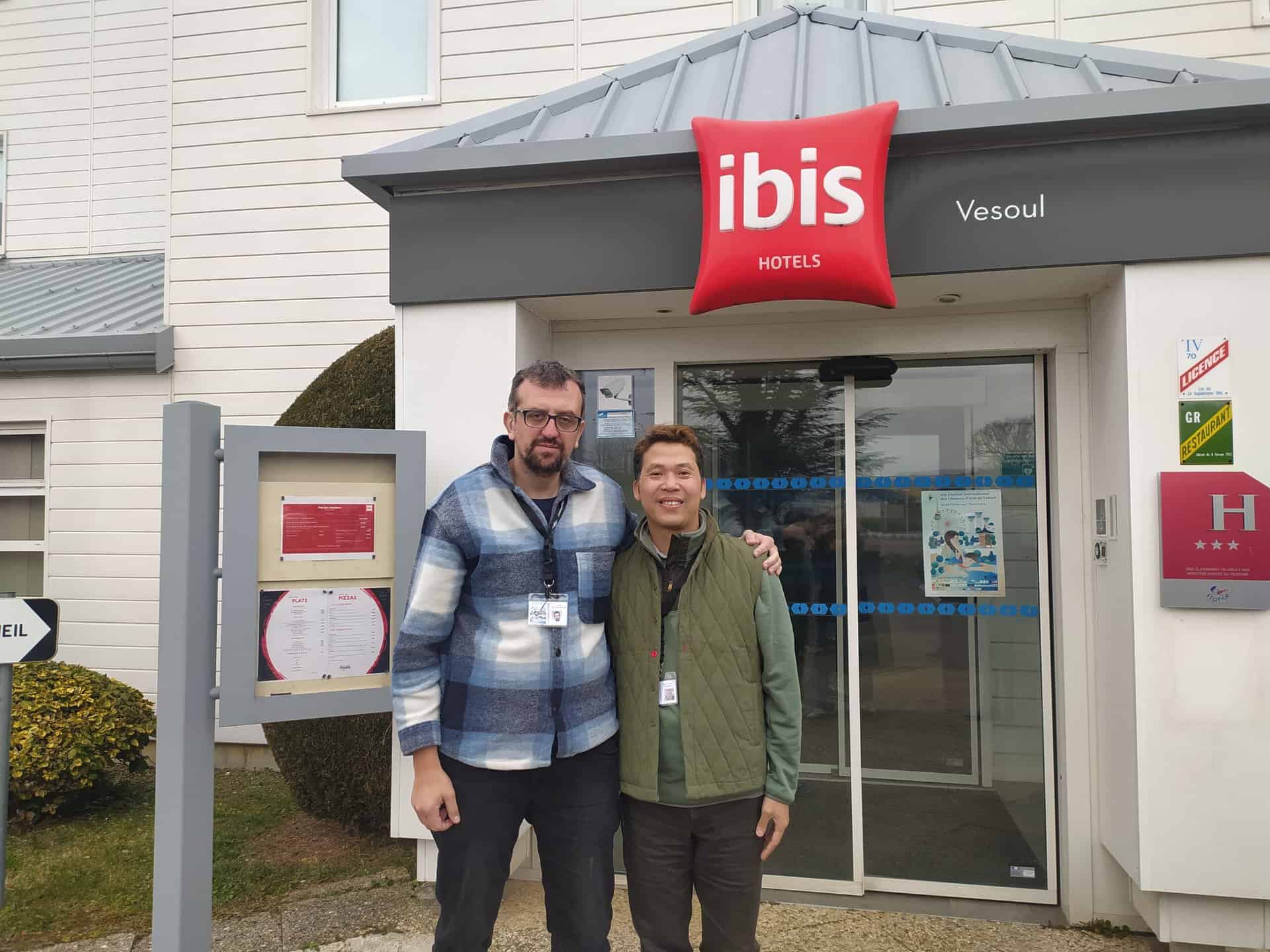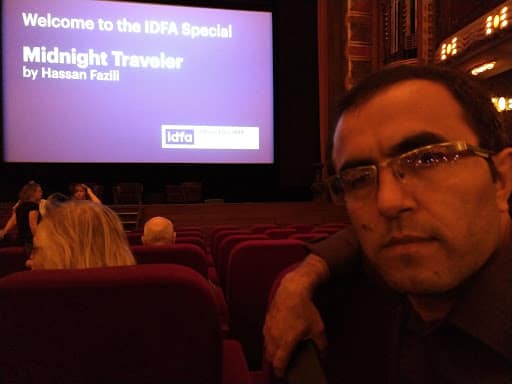Born in Taiwan in 1978, at the age of six she began supporting her mother in her work as a Taoist priestess in funeral processions. She had to leave school in the third grade to help her single parent make ends meet and learnt to read and write from comic books and television. At 20, she became a political activist and worked with labour organisations and unions as well as beginning to make documentary films. Her short films, which focus on the plight of domestic and migrant workers in Taiwan, have screened at numerous international festivals.
Her latest film, “Small Talk” had its international premiere at the 67th Berlin International Film Festival in the Panorama section, and won the Teddy Award for Best Documentary film, among a number of other awards. It was selected as the Taiwanese entry for the Best Foreign Language Film at the 90th Academy Awards, but it was not nominated.
We speak with her about the film, her relationship with her mother and her daughter, Taiwanese cinema, and other topics.
For starters, I would like to congratulate you for having your film submitted for the Academy Award for Best Foreign Language Film. How do you feel about this, and did you expect it in any way?
I thank the committee's courage for making history. This is the first documentary to represent Taiwan for the Oscars. I look forward to seeing more documentaries to be supported by the government in the future.
The main subject of the documentary is very strong and very hard for both of you and your mother. Why did you decide to shoot a film based on this very personal matter, and how hard was your decision?
It's very important for me and my mom. We don't really know how much time we have left for each other. No matter how hard it is, making this film is still better than living our whole lives as two strangers.
During the interviews, your mother seems to have a very hard time speaking about herself. Was she as difficult as it appears on screen? And what about you, how difficult was it talking about all these painful, personal experiences? (I have to admit that I admire you for being so brave).
My mom is not comfortable with talking, even after we finished the film. Maybe we are all waiting/looking for a right time/way to talk to each other. This film helped us to achieve that, at the right time, in a right way.
The rest of the interviewees, on the other hand, seem to have no trouble getting on details about her. How did you manage to make them speak so freely? Did you have any trouble with any of them during the shooting?
Luckily, all the interviews went smoothly. I think the reason why they can speak freely is that they trust me as a family member. I believe it's the power of time. We've been preparing for a whole lifetime for this.
How is your relationship with your mother now? After shooting the film, do you feel as you understand her better?
Maybe I should put it this way: after shooting this film, I do know this “woman” as a mother better and this woman happens to be my mom.
How do you raise your daughter in order to avoid her having the same feelings for you as you did for your mother?
I only have one principle: never forget to listen to her. No matter how old she is (she's five now), I am telling her my thoughts honestly.
Your mother's story presents the Taiwanese society as very conservative, particularly regarding women and LGBT. Is it still like that today? What is your opinion on these two subjects?
I think these two issues (women and LGBT) have made more progress in Taiwan, compared to other countries. But of course, there's always room for improvement.
When you were interviewing the two girls, I felt that you were really fed up with the one who had no opinion on LGBT. Were you actually, and if affirmative, why?
On the contrary, I actually pity her more and am very curious about the contradiction she's experiencing in her mind. I don't think she has no comment on LGBT issue, it's really about she can't find the balance between her voice and the ever-changing social value. It's just like how I felt when I was a child.
Why did you choose to present this story as a documentary and not feature films?
I believe the documentary as a medium is the best way for this story to be told, both for my family and for society.
What is the situation with the Taiwanese movie industry at the moment, and what about the documentary scene?
Apart from the masters of the New Taiwanese Cinema, I do think all the filmmakers in Taiwan are in the same situation, of not having enough confidence to find new ways and new languages to make films.
Which are your favorite filmmakers/movies?
I can't choose just one. There are so many films and filmmakers that bring important messages. I really like Sean Baker recently.
Tell us a bit about your next projects.
I've known some aboriginal friends since 2008. My next film will be about them, about humanity, about class, about minorities and about dreams.


